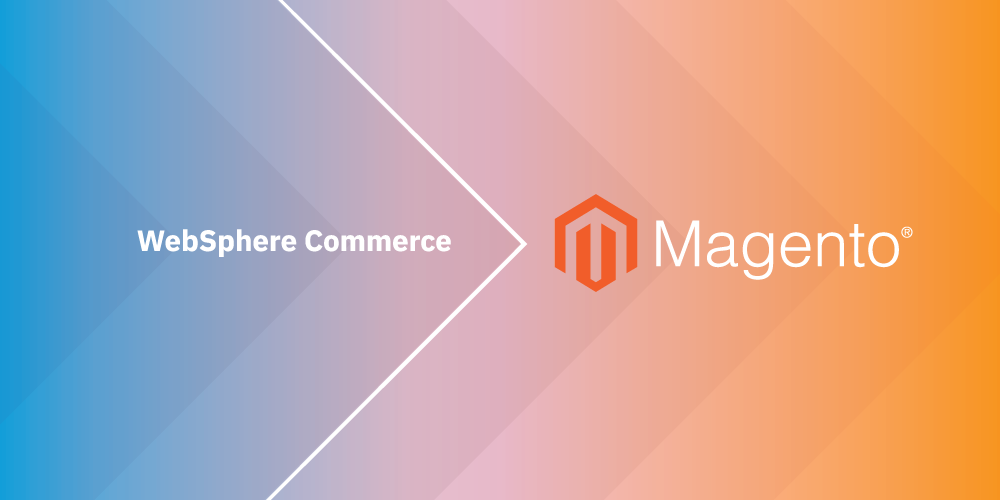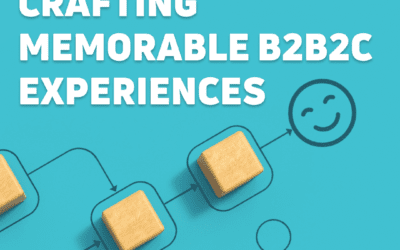When considering any move from one platform to another, there are three fundamental questions, the answers to which are typically the strongest motivating factors for migration: “Should I make this move?”, “When should I make it?” and “How do I prepare to move?”. Asking these questions and understanding the answers is one of the key elements to a successful re-platform.
Suppose you are looking at migrating from WebSphere Commerce to Magento Commerce, especially with the launch of v9 and the impending acquisition of WebSphere Commerce by HCL. In that case, answers to these questions extend from the platform into business and market considerations.
WebSphere Commerce is the definition of a mature eCommerce platform; Magento 2 is often described as up and coming, a modern platform with an agile approach. Each platform has unique features, and as the above questions are asked, it is important to understand how these unique features may be advantageous for your company – and how they may not.
Should I replatform to Magento?
As a business on WebSphere Commerce, you have enjoyed one of the most comprehensive, feature-packed eCommerce ecosystems available. However, in the past few years, Magento has introduced a suite of solutions to augment the freshly revamped Magento 2 Commerce platform. New offerings include extended B2B features, Magento Order Management (an OMS), Magento Shipping (a WMS), and Magento Business Intelligence (Analytics and BI). Together with Magento Commerce, this presents an ecosystem that may be strong enough to serve as a functional alternative to WebSphere Commerce and its companion suite of solutions. While there is no doubt that WebSphere Commerce presents a deep offering, it does so with cost. If the business is not leveraging the full suite of WebSphere Commerce features in the first place, the cost may not be worth it.
WebSphere Commerce v7 will reach the end of support in April 2020, and for those of you still on v7, this means a necessary expenditure to the commerce system no matter what. If the business stays with WebSphere Commerce, it faces the need to incur costs of an upgrade to v8 or v9 – or face risks brought on by lack of support and loss of new features introduced in these later versions. Again, the question – upgrade or re-platform? Money will be spent either way, so which way is better? An upgrade tends to keep business where it is. This typically incurs lower risks and sometimes lower gains. Re-platforming opens the door to gaining new features and streamlining eCommerce operations. Even more, when re-platforming, the opportunity exists to update and optimize business practices and maximize operational efficiency. Often, re-platforming from WebSphere Commerce to Magento Commerce presents a total cost outcome with a quick and clear ROI.
WebSphere Commerce is a mature, feature-rich product, too feature-rich for some companies. Magento Commerce has been around for about a decade now. It has just undergone a complete renovation that focused on updating the technologies used, streamlining the user interface, and providing desirable add-on services such as OMS, BI, and WMS. In May of 2018, Magento was acquired by Adobe, a move placing the ecosystem solidly in the enterprise arena. These changes are reflected by Gartner and Forrester, who has placed Magento as Visionary Leaders with Strong Offering and Strategy in both the B2B and B2C markets. Adobe’s acquisition of Magento also opened the door to large-scale enhancements in areas such as CMS. Magento Commerce will likely see a very welcomed, graceful tie-in to Adobe Experience Manager.
Magento Commerce is an agile platform based on modern and easily deployable technologies. With the recent Magento Commerce 2 refresh, the company has demonstrated a solid commitment to ensuring that the best of new technologies are incorporated into the platform while keeping ease of use of paramount importance to design.
Okay, so replatforming is a solid idea – but when would I make the move?
If you’re on WebSphere Commerce v7, your business is looking at upgrade costs in the immediate future. The upcoming end of support date, and the introduction of v9, provide the perfect opportunity to evaluate whether spending money on an upgrade or a re-platform makes more sense. Additional factors can include retooling of other systems, such as changing/upgrading an OMS or ERP. Significant changes here will often impact the eCommerce platform as well and lead to additional effort and cost. Re-platforming also presents the perfect opportunity to spend effort on overhauling business processes. A new platform introduces new ideas and may allow a business to optimize operations and save big in the long run.
Right, so how do I prepare for the move?
The first step, and ongoing throughout the project, is to determine your ability to adapt business processes. eCommerce business has likely grown during your time spent on WebSphere Commerce; its platform has influenced growth. In many cases, a method has been performed in a certain way because that particular way was the least resistant path. In other words, the process was set up because the eCommerce platform supported it out of the box. Changing eCommerce platforms may mean invalidating the original reasons for these processes. This provides the perfect opportunity to look at a process and see if it can be altered to a) become more optimal and b) work more natively with the new platform. Ask why an operation is performed the way it is. Compare the current process against different ways the process might be performed on a new platform. Engage your implementing partner and platform experts – make sure they understand the requirements and ask them if there’s a better way to make it work on the new platform. Taking these actions in many cases leads to a reduction of customization costs. Falling back on “This is the way we do it now” is easier but often leads to more extensive customization. In the end, more adaptable processes lead to lower customization and optimized business practices, which lower overall total costs.
Having determined where a process can be flexible and where it cannot, the new platform should be evaluated based on comfort and fit with the overall business process. For the areas where the approach is less flexible, ask how well the platform can address these concerns out of the box and where customization may be needed. This is an area where Magento Commerce traditionally excels – with a broad array of extensions and a codebase designed for easy modification. Many needs can likely be met with the installation of extensions. WebSphere Commerce is built for integration and can be integrated with almost anything, which is a huge benefit. That also means you have to pay your implementation partner to create all of the integrations.
Engage a solutions implementation partner that understands both platforms and determine which path makes sense for your business. Ask specific questions about how existing features could work on the new platform. Provide detailed and real-world examples – and remember, no one knows your business as well as you do. For WebSphere Commerce to Magento Commerce migrations, we are a perfect choice, with deep knowledge and experience in both IBM and Magento platforms.
Parting thoughts
Finally – give yourself time. Deadlines are a primary cause of compromise and a stringent limiting factor in the ability to optimize both process and platform. If you see an upcoming deadline start now, don’t wait.
How can we help you?
Our team of certified, experienced Magento and WebSphere Commerce experts will work you to build a roadmap that fits your business’s needs and timeline.




